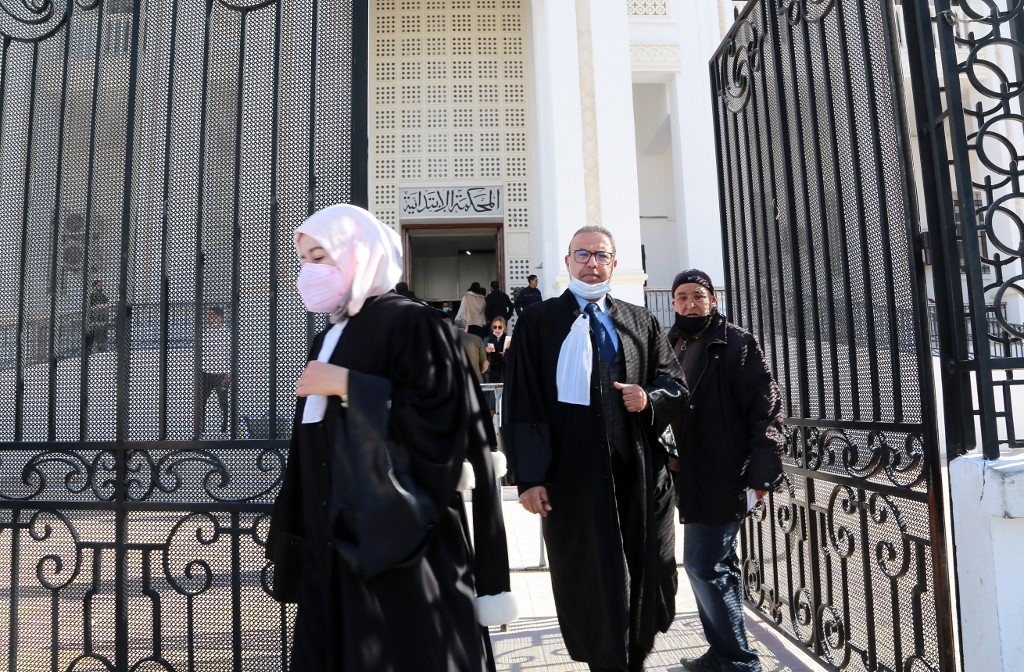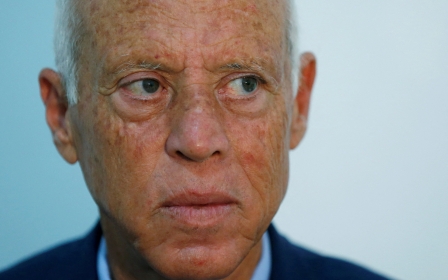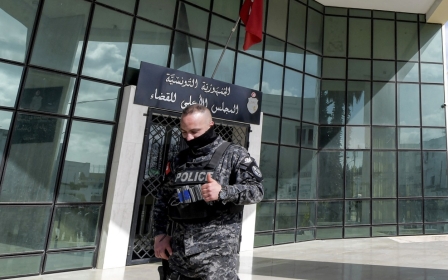Tunisia: Saied to change judicial council amid mounting criticism

Tunisian President Kais Saied will change the law regulating the Supreme Judicial Council (CSM), Justice Minister Leila Jaffel said on Wednesday, days after he announced plans to dissolve it.
The move came after Saied's initial announcement faced backlash at home and abroad with Tunisian judges announcing a two-day strike to protest his decision, seen as a threat to the independence of the judiciary.
On Sunday, Saied accused the body responsible for appointing judges of bias, corruption and delaying politically sensitive investigations - including into the assassinations of left-wing activists in 2013.
His decision was widely condemned by judges and opposition leaders. The head of the CSM, Youssef Bouzakher, called it illegal and vowed that "judges will not be silent" and would continue to carry out their duties, MEE reported.
Tunisia was once regarded as the only democratic success story to emerge from the 2011 Arab Spring. But critics say Saied is moving towards authoritarian rule in the country.
To express their disappointment, the Tunisian Magistrates' Association (AMT) urged judges across the nation to strike on 9 and 10 February. At least 70 percent of judges adhered to the strike, according to initial numbers, AMT chief Anas Hamadi told AFP.
Hamadi also said that all courts in the Manouba, Sfax and Tataouine provinces were closed, and that very few judges went to work elsewhere. According to AFP, no hearings were being held at the lower court in the Ariana governorate, which is part of greater Tunis.
The Syndicate of Judges, a separate union that has called for judicial reforms, was not taking part in the strike.
“The President of the Republic is missing every opportunity for dialogue and consultation to find solutions that could preserve the independence of the judiciary,” Hamadi said, adding that Saied’s decision was a “danger to the state and the judiciary, one of the key pillars of a democratic state".
On Wednesday, 45 civil society groups in Tunis issued a statement rejecting “any interference by the executive authority in the judiciary's work".
Earlier this week, Saied announced that he had no intention of interfering in the judiciary, saying: "I assure everyone in Tunisia and abroad that I will not interfere in the judiciary. I will not interfere in any case or any appointment. I do not want to control all power."
Middle East Eye propose une couverture et une analyse indépendantes et incomparables du Moyen-Orient, de l’Afrique du Nord et d’autres régions du monde. Pour en savoir plus sur la reprise de ce contenu et les frais qui s’appliquent, veuillez remplir ce formulaire [en anglais]. Pour en savoir plus sur MEE, cliquez ici [en anglais].





